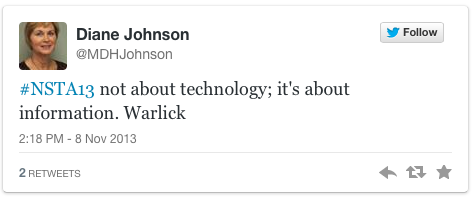Note: Ramble and snark quotients: +99
When I was a student, I was taught to scratch paper. I scratched lines and loops and did it well or poorly, properly or improperly. I hide all of my scratched paper in my notebooks until it was time to give it to my teachers, who measured its correctness by marking what was incorrect. If there was no incorrectness, then a got a 100 or an “A” ––––– 100 what? “A” what?
The hope was that if it was ever necessary for me to write, in order to communicate across time or space, I would remember enough correct scratching to be coherent and compelling.
When I graduated from high school, writing was still a “just in case” skill. A sizable portion of my class went to work in one of the local textile mills, planning never to ever have to scratch anything again that was any more important than a shopping list.
This is an profoundly inefficient and disrespectful way to educate free people.
To say, “One day you’ll need to know this,” is to admit appalling lack of commitment and creativity. This is especially true when insult to injury is what’s not said, “You’ll need to know this for the government test in May.”
What conjured this internal conversation in me was a brief exchange in the backchannel transcript from a National Science Teachers Association conference in Charlotte a couple of weeks ago. Diane Johnson tweeted:

..to which I commented in the transcript wiki,
Stop Integrating technology. Instead, integrate networked, digital and abundant information. It changes what it means to be literate, and it empowers learning. Empowered learners are better than engaged learners. – dfw
That last sentence came from something that David Jakes said at ISTE last year in San Antonio. He said,
“We need to shift from a focus on’Engagement’ to focusing on ‘Empowerment.’“ (Jakes, 2013)
I, in my schooling, was neither engaged nor empowered, as I learned to scratch paper. Of course, there were those who were engaged, or acted engaged. They scratched eagerly and more correctly than I did, because they received more 100s and As. I don’t know how their scratching was better than mine, because I never saw it. I couldn’t learn from their example, because their scratches were hidden in notebooks as well. It had no more value or power than mine did.
I don’t scratch any more. I write. I put words to paper or to screen, and clarify their meaning with punctuation and capitalization, because I am writing to someone for some purpose.
I’m still learning to write better. I question what I write and I Google things like, “proper placement of commas in sentences” or “italics quotation marks and titles.” I also use an array of digital tools to help me spell and choose the best words – tool that my teachers, 50 years ago, could not have imagined. Their notions of our future needs and opportunities did not reach much further than cotton mills and the college that the “engaged” would attend – as well as a few of us who were not “engaged.”
Today, engagement has become one of our most earnest pursuits, because we’re teaching children who are accustomed to being engaged.  ..and we continually ask, “How do I measure engagement?”
..and we continually ask, “How do I measure engagement?”
You can’t, at least in any way that even suggests the quality of learned.
But empowerment can be measured. You do it the same way that our value is measured after we leave classrooms, teachers and textbooks behind. Learners demonstrate what they’ve learned, by what they’re empowered to do with it – what they produce, the problems they solve, the goals they accomplish. Look at a produced video, crafted animation, clear and compelling article, or a creatively designed and marketed bird house, and you can see what was learned.
It’s not clean. It’s not clinical. But what does precision grading mean when the names of state capitals, the chemical symbol for magnesium and the proper placement of the comma can all be Googled. Why are we so pressured to test our children’s ability to live without Google.
Lets face it. The only ones who want this for our children are those who would politicize and monetize education.
Jakes, D. (2013, June). In Steve Hargadon (Chair). an unconference discussion. A conversation that was part of Hack Education Iste 2013, San Antonio, TX.

I couldn’t agree more with the statement lets teach our students to be empowered instead of engaged. In my opinion the only way to do this is through building strong relationships with our students. If our students do not know that we truly care about their success inside and outside of school they are never going to achieve what we know they can. Giving the students the confidence to be empowered is the greatest gift we can give our students. I also enjoyed the point that when we teach empowerment instead of engagement we are able to see the progress through data as well as testing unlike engagement.